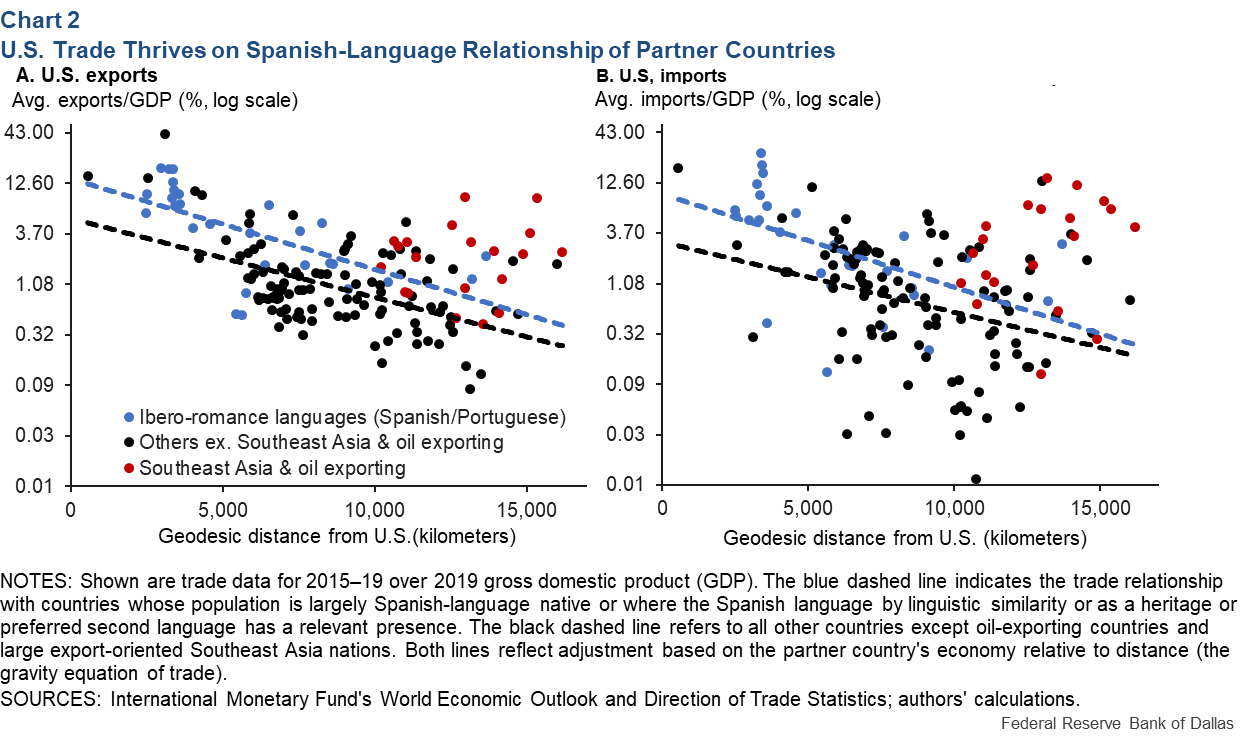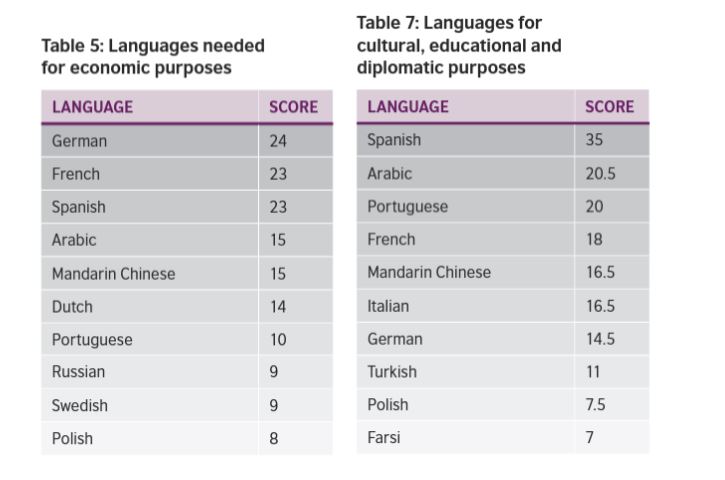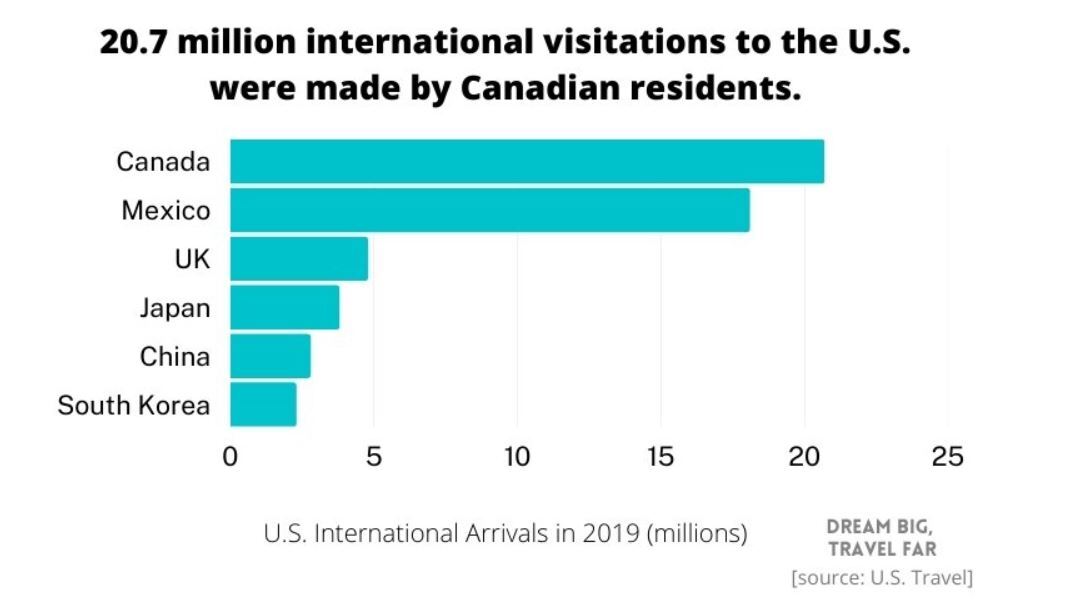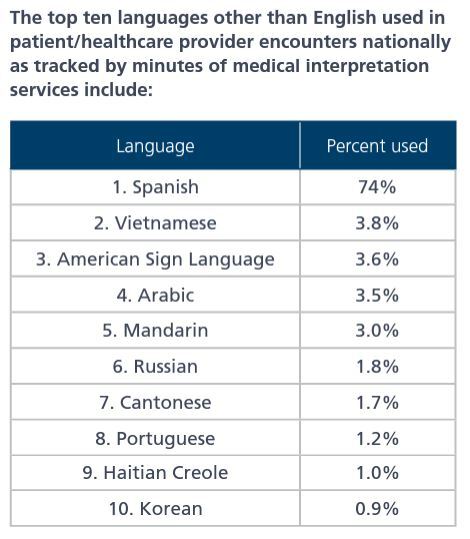How is Spanish in Demand in the Business/Job Market?
When we think about Spanish, our minds immediately travel to fantastic places with breathtaking views, passionate music, diverse cultures and delicious food.
However, not only is speaking Spanish a valuable skill for travel and leisure, but it is also highly in demand in the business/job market.
Keep reading to learn more about how you could make good use of your Spanish in business opportunities.
Why is it important to learn Spanish?
We all know that Spanish is the world's second most spoken language, but did you know it counts approximately 460 million native speakers and 70 million people worldwide who use it as a second language?
Simply by visualising how many people speak Spanish, I believe you would agree with me that the importance of speaking Spanish in business is evident as Spanish offers a wide range of business opportunities, from increased employability and earning potential to admittance into certain industries and professional areas.
But how and why is it important to learn Spanish for your career?
Why is Spanish Important in the Job Market?
Being fluent in Spanish at work and understanding the diverse culture coming with it has various advantages.
The European Commission's Eurobarometer survey shows that Spanish is the fourth most spoken language in the European Union, while the Federal Reserve Bank of Dallas analysis reports that the U.S. has the second-largest native Spanish-language population in the world, thus making Spanish a valuable asset for the domestic and international economy.
Therefore, being bilingual or proficient in Spanish opens up a plethora of job opportunities in a variety of industries because people who can connect directly with Spanish-speaking consumers or navigate Spanish-speaking marketplaces have a competitive advantage as they can build better relationships and develop new business opportunities.
Also, speaking Spanish at work improves cultural awareness as well as diversity and inclusiveness. Companies that respect language skills provide a welcoming atmosphere for employees from all walks of life. Organisations that embrace Spanish as a business language exhibit their dedication to diversity and open the door to cross-cultural collaboration.
Just as importantly, employees who are fluent in Spanish generally earn more than their monolingual counterparts, according to study. This salary increase demonstrates the importance of Spanish language abilities in the professional sector. Employers recognise that employees who can properly communicate in Spanish can act as bridges across different markets and contribute to the firm's overall success.

What are the Benefits of Speaking Spanish in the Workplace?
One of the key benefits of speaking Spanish at work is the capacity to communicate successfully and effectively with Spanish-speaking clients, colleagues, and customers in their native language without the support of a third person. This improves understanding, fosters trust, and enhances commercial connections. Indeed, multilingual staff who can communicate in Spanish frequently have greater levels of client satisfaction, which leads to improved customer loyalty and repeat business.
In addition to this, being proficient in Spanish opens doors to a broader range of professional options. Many companies actively recruit personnel with Spanish language skills, since it displays an ability to adapt and serve to a worldwide market. Companies respect personnel who can successfully connect with a varied customer and frequently prioritise employing persons with Spanish language fluency.
Aside from the obvious advantages of increased career opportunities, the ability to communicate in Spanish in business markets facilitates improved cooperation and idea sharing within a multinational team. It helps organisations to embrace diversity, establishing a more inclusive work atmosphere in which people from all walks of life feel appreciated and respected.
Last but not least, speaking Spanish at work might boost your earning potential. Bilingual professionals, particularly those fluent in Spanish, sometimes have an advantage in pay negotiations. Companies recognise the significance of Spanish language abilities and are prepared to compensate accordingly. Bilingual personnel who can act as language mediators or facilitators for Spanish-speaking clients or coworkers may also be recognised and rewarded for their unique contributions.
Does Speaking Spanish Help You Get a Job?
The quick answer is that speaking Spanish can help you find work. Bilingual individuals or students with Spanish language fluency are in great demand in today's globalised business environment, as organisations are expanding their reach across boundaries.
Knowing how to communicate successfully in Spanish gives you a significant advantage in a variety of sectors and career situations.
Companies today operate on a worldwide scale, which means they cater to a diverse set of markets and clients.
According to a British Council survey, if we balance the economic purposes with cultural, educational and diplomatic ones, Spanish is the first most important language for UK enterprises, surpassing French.
A poll of UK employers found that 58% thought Spanish was valuable for their firm, and 37% said it was critical.

Employers favour applicants with Spanish language skills for their adaptability and cultural competency, regardless of industry. Fluency in Spanish indicates your capacity to comprehend and interact with people from other cultures, which is becoming increasingly crucial in our globalised society. It demonstrates your openness to diversity and ability to work well in multicultural teams.
Business Spanish might also provide you an advantage over other candidates, especially in industries where Spanish language fluency is in great demand. This is because they give value to organisations by serving as language mediators, negotiating with Spanish-speaking clients or suppliers, and tapping into new business markets.
Does Speaking Spanish Lead to Higher Pay?
One major topic that frequently arises is whether speaking Spanish leads to increased salary.
The answer is absolutely yes: speaking Spanish may lead to greater salary, although this also depends on your negotiation skills.
Bilingual employees with Spanish language skills are in great demand in today's globalised business scene, as organisations operate across borders and serve varied markets. This higher demand translates into more bargaining power when it comes to salary and compensation packages.
According to a recent survey done by the Schwartz Insurance firm and reported by the Financial Post, bilingual or multilingual employees, particularly those who speak Spanish, earn 5% to 20% more than their monolingual colleagues. These findings underline the importance that companies focus on language abilities, particularly in a widely spoken language like Spanish.
Several variables contribute to Spanish speakers' increased earning potential.
Companies, for example, understand the value of good communication when dealing with Spanish-speaking consumers, clients and coworkers. Bilingual workers create easier interactions, greater comprehension, and stronger commercial partnerships by being able to transcend the language barrier. Companies respect staff who can engage directly with Spanish-speaking stakeholders, and they are ready to compensate them accordingly.
Speaking Spanish provides up new options in areas and employment roles where competence in the Spanish language is highly valued. Bilingual individuals that can effectively connect with Spanish-speaking clients and traverse multicultural situations are in high demand in fields such as international business and healthcare. These industries are recognised for providing competitive wages, and being fluent in Spanish can help you land higher-paid opportunities within them.
Spanish language abilities might help you stand out in negotiations and commercial transactions with Spanish-speaking clients or suppliers. Your ability to comprehend and participate in Spanish helps you to more successfully create relationships, establish trust, and manage cultural subtleties. These talents can lead to more business opportunities, which can lead to greater wages and job progression.
In Which Business Sectors is Spanish Language Proficiency Particularly Advantageous?
Let's look at a few industries where Spanish proficiency is highly appreciated.
-
International Trade and Business
Businesses involved in international commerce profit enormously from staff who speak Spanish because it is the official language of many key international trading partners, including Spain, Mexico, Colombia, and Argentina.
Professionals who are fluent in Spanish can be the key to better or new business opportunities as they can negotiate contracts, form partnerships, and manage cultural subtleties with Spanish-speaking clients, suppliers, and stakeholders.
-
Tourism and Hospitality
Employees who can interact with a broad audience are highly valued in the tourist and hospitality business, which caters to travellers from all over the world. The US Travel Association reports that about 18 million visitations to the U.S. were made by Spanish-speaking visitors from Mexico in 2019, making them the second largest international market after visitors from Canada.

-
Customer Service and Sales
The capacity to interact successfully with a diverse spectrum of consumers is critical in customer-facing professions. Spanish language skills are highly prized in customer service and sales roles, particularly in areas with large Spanish-speaking populations. Speaking Spanish enables workers to help Spanish-speaking consumers, solve their requirements, and develop long-term customer connections. This language competence can provide a competitive edge for organisations in acquiring and maintaining Spanish-speaking customers.
-
Healthcare and Social Services
The healthcare industry recognises the importance of providing culturally sensitive care to individuals from diverse backgrounds.

A report by the AMN Healthcare Language Services revealed that Spanish is the most commonly spoken non-English language in US hospitals. In 2021, Spanish was spoken in 74% of patient/healthcare provider encounters in the U.S., and in 47 out of 50 states.
Being able to communicate effectively in Spanish can improve patient outcomes, increase patient satisfaction, and reduce the risk of medical errors while building stronger relationships with Spanish-speaking patients.
What are Some Job Roles that Require Spanish Language Skills?
Identifying career roles that explicitly demand Spanish language abilities is critical for professionals and university students learning Spanish. Understanding the many professional routes where proficiency in Spanish is prized can help individuals make educated language learning decisions and explore intriguing work prospects.
Spanish proficiency provides you a great amount of work opportunities in a variety of areas where it is highly valued. Let's look at some of the jobs that especially demand Spanish language abilities.
-
Translator or Interpreter
Fluency in Spanish is essential for enhancing communication between Spanish-speaking persons and English-speaking counterparts as a translator or interpreter. Legal processes, corporate discussions, hospital settings, and foreign conferences all require the services of translators and interpreters. The capacity to express messages effectively in both languages aids in bridging language gaps and ensuring successful communication.
-
Diplomacy and International Relations
International relations and diplomacy professionals frequently need Spanish language abilities, especially when dealing with Spanish-speaking nations or areas. Fluency in Spanish assists ambassadors to manage difficult international challenges and create diplomatic ties via efficient communication, negotiation, and cultural understanding.
-
Journalist or Foreign Correspondent
Being able to converse successfully in Spanish offers up prospects to work as a foreign reporter or journalist in Spanish-speaking nations in the area of journalism. Reporting on local events, conducting interviews, and giving in-depth coverage of area news all need a thorough knowledge of the language and culture. Spanish language abilities enable journalists to interact with local populations and report stories properly.
-
International Business and Sales
Companies and professionals in international business and sales frequently demand business Spanish language skills in order to enter Spanish-speaking markets and serve a varied variety of clientele. Sales representatives, business development managers, and marketing experts that can successfully communicate in Spanish have a competitive edge when it comes to increasing their company's reach and developing partnerships with Spanish-speaking clientele.
Please remember this is just a very short list of jobs requiring Spanish proficiency, but there are many more different areas in which your Spanish language skills may be useful, including teaching, social work, law enforcement, and non-profit organisations.
Being able to interact with Spanish-speaking persons in these jobs improves service delivery and promotes diversity.
Conclusion
I hope this article cleared your doubts about how Spanish is in demand in the job market and why learning Spanish is important.
Speaking Spanish provides doors to a variety of sectors and work responsibilities, giving you a competitive advantage, increased earning potential, and chances for personal and professional development. Investing in learning Spanish will surely set you apart and open the way for interesting professional opportunities, whether you wish to be a translator, diplomat, journalist, or succeed in international business.
Now that you know the power of Spanish in business, broaden your perspectives and begin on a journey that will enhance your life and open up new doors!
¡Adelante!
Author:

Fabia Parodi
Fascinated by foreign languages and cultures, Fabia Parodi was determined to be a polyglot since she was a child. Fluent in Italian, English, French and Spanish and competent in Mandarin Chinese, Fabia is an experienced language teacher, translator and multicultural marketing specialist.
When in class, she always make sure to include graded and authentic materials in her lessons to expose students to foreign cultures and to introduce a more natural use of the language they are learning. The two things she loves more than languages are travelling and exchanging stories with people from all over the world.


